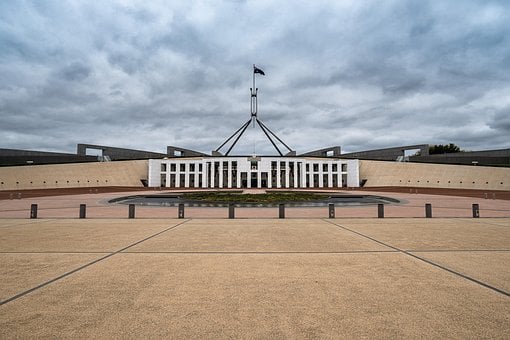
MP Patrick Gorman on Sky News Afternoon Agenda
TOM CONNELL, HOST: Alright, we’ve got Parliament back tomorrow, but we’ve got the panel that everybody waits for today, Assistant Minister to the Prime Minister, Patrick Gorman, here in the studio with me, and former Liberal MP, Jason Falinski as well, joining us. Thanks both for your time. How do you feel coming back, Pat? Is it sort of you’ve always got excitement, enthusiasm, but you’ve been back here a few times. Is there any element of ‘oh, getting back on the plane from sunny Perth and trudging back to Canberra?’
PATRICK GORMAN, ASSISTANT MINISTER TO THE PRIME MINISTER: I love Canberra. I love our nation’s capital. I love the work that we get to do here in this Australian Parliament. So I’m happy to be back. It’s been good to be catching up with my colleagues. I’ve just come from the caucus room where we’ve signed in some new senators into the caucus book. We’ve had the Prime Minister talk to us about the importance of delivery and making sure that we actually get things done for the Australian people. That’s what we’ll be doing this week in Parliament. I’m looking forward to getting back into the parliament and continuing to articulate our vision to build Australia’s future.
CONNELL: I just thought there might be a tiny element of ‘oh, it’s you know, yep, a bit cold, trudging back here,’ but never. Jason –
GORMAN: – I miss you. Tom, when we’re not sitting next to each other, we don’t see you in the halls of Parliament. I miss you. It’s good to be back.
CONNELL: Jason. What about you? Do you sit there going, ‘thank God’ you’re not coming back here. You know, every passing day between now and your former political career?
JASON FALINSKI, FORMER LIBERAL MP FOR MACKELLAR: No, I actually miss Canberra. I had fun down there. It was, you know, as Pat says, it’s a real honour and privilege to be able to be involved in, you know, the life and making Australia better for Australians and future generations. So it’s a real privilege. How could you not look forward to doing that?
CONNELL: Hey, I love it here. Just thought someone would bite. But maybe we’ve got a present and a future politician with me. Maybe that’s the real issue. Comment on that, if you want or don’t, Jason, but comment on this: HECS debt. Slashing HECS debt. Is this something the Coalition should just pass through? Is there a mandate? Is it a good use of money?
FALINSKI: No, it’s not a good use of money. And no, we shouldn’t pass it through, although, having said that, the Labor Party took it to the election. And I firmly believe that if a political party takes a policy to the election, then it is – we should oppose it, but we shouldn’t vote against it. And therefore, I think maybe we shouldn’t vote against it in the Lower House or the Senate. Having said that, they’re not reducing student debt Tom. All they’re doing is they’re making it someone else’s debt. So it’s not a debt reduction, it’s not a way to make education cheaper and more affordable for Australians. The universities are still charging too much for too little and giving too little back and not doing research. And always that –
CONNELL: Wasn’t that especially on humanities? A change made by the Coalition to try to change what people were studying, it didn’t work, and now, just if you study a humanities degree, you’ve got a bigger debt. Has that reform worked out well?
FALINSKI: I think, I think that most of our reforms in education, including Gonski 2.0 were not successful, Tom they did not serve either families or students. They didn’t make us ready for the future. They didn’t provide the skills. They haven’t made educational institutions responsive to the needs of future Australians and Australians today. You know, these are institutions that are having a great laugh at how much money they can get from as few people as possible. And dare I mention international students, but you know.
CONNELL: Alright, I want to ask Patrick something he’s feeling left out. Why not tackle that element of it? This, this is the change made by the Coalition, where they said ‘too many people study humanities, it’s not a useful skill,’ and they essentially made people pay a lot more, or allowed universities to charge a lot more. And you haven’t touched that, why not?
GORMAN: What we thought was the priority when we looked at what we wanted to do with higher education, and of course, Minister Jason Clare continues to work through the Universities Accord of recommendations, but what we wanted to do was to help with that immediate cost of living pressure from having those large university debts. So we’re acting on that. I know from my electorate, some 22,529 people will benefit from the bill –
CONNELL: So get people to keep racking up the debt and use taxpayer money to reduce it. That’s the plan?
GORMAN: – And this also has an immediate cost of living benefit, because what we’re also doing is increasing the thresholds at which people have to pay back those payments, so they will get to earn more, keep more of what they earn. Keep more money in their pocket when they’re starting out their career –
FALINSKI: – That’s not true.
GORMAN: – That’s what we’ve chosen to prioritise. And if people want to look at what we’ve done in other areas of education, they look and look at our initiative for Free TAFE, with more than 500,000 that have enrolled.
FALINSKI: – But it’s not free!
CONNELL: You alluded to the other bits being worked through – universities are charged all that extra money for the courses, then put on your taxpayer money cape on and reduce the debt at the end of their degree. It seems like a strange way to go about it.
FALINSKI: – It doesn’t reduce their debt.
GORMAN: – It does reduce their debt, and it changes the thresholds at which they have to pay it back.
FALINSKI: – No, it doesn’t.
GORMAN: – That means they get more money in their pocket in those early years of their career. And again, I’ll just point out that if you want to see our investments in education, they’re there across the board, investments in early childhood education –
FALINSKI: – They’re not investments, it’s spending.
GORMAN: – Investing in Free TAFE, delivering the full Student Resource Funding Standard. That’s there, we’ve agreed that with the states and territories. And this, which will make it more affordable for people to take on university degrees, to go and get the skills that they need for the future and in those early years of their career, when they may be earning some $50,000, $60,000 they’re not paying as much back.
CONNELL: It is, look, I’ve gone back and forth with Pat on what the money is for, Jason. But it does cut debt overall.
FALINSKI: Tom, let’s just be clear about this. We haven’t reduced debt. TAFE is not free. This is not an investment. It’s – like – these institutions are still massively charging too much money for not providing skills that Australians need. So there’s no real reform in education under this government, or frankly, the previous government of which I served. So let’s, let’s everyone just be blunt about this here; Australian students are continuing to get ripped off. They did not reduce the debt. They just took the debt and they gave it to someone else to pay back. TAFE is not free. Someone else is paying for it. They’re still not providing the skills that Australians need into the future, and that’s why this is just a Ponzi scheme that really needs to actually be properly reformed.
CONNELL: Jason, I want to ask you, I’m not sure – you’re fired up now, I’m not sure if this is the right way to go about it. We’ll see. What was your maybe, what was your emoji when you heard Barnaby Joyce say, ‘let’s revisit net zero’ this morning?
FALINSKI: Oh, well, that’s an original idea from the National Party.
CONNELL: All right, so the fake, the fake thinking face maybe?
FALINSKI: They’re really, they’re really swinging for the fences these days. Yes, maybe.
CONNELL: What would you do – you’re Sussan Ley, do you wake up and go, ‘great, this is how I want to start the new term’?
FALINSKI: Well, why not? It’s how we finished the last one and the one before that and the one before that. I mean, like, what is it? ‘Hell is doing the same thing over and over again?’ I think, I think we’re in, like, Dante’s fourth circle of hell on this. Someone needs – I mean, look, these debates are necessary on our side so that there can be proper resolution. And then everyone needs to get in line and defend our policy, whatever it may be. But you know, the vast majority of Australians want to see us take action on climate. They believe that human beings have created changes that are adverse to us in our climate, and we should be global leaders in this in this endeavour. I share their concerns. I think the National Party needs to come to the table with some ideas around how to deal with that. Rather than pointing to all the ludicrous or ludicrousness of the current policy settings that we have, they need to actually come up with some solutions.
CONNELL: Getting things passed around this area, Patrick, might just involve not the Coalition, but the Greens. What do you do about the Senate crossbench? Is it just simply you deal with the Greens now and that’s it, because there’s no actual relevance to other crossbenchers if the Greens pass something right now. Does that just make you feel uncomfortable? Are you going to pretend to do a deal with someone else, and then just use the Greens’ votes and whack them on as well?
GORMAN: We will do what we did in the last term, which is we treated the crossbench with respect. I sat in a number of briefings for crossbench members in the House of Representatives. We took, where there were good ideas from crossbenchers about our legislative agenda, we took those suggestions seriously. So we’ll do that again this term, and we didn’t need to do that in the House of Representatives. We did it because we wanted to get the best outcomes for the Australian people. And if I can just comment on what we’ve just had from Jason, I think Jason at least believes that climate change is real and believes that Australia should do something about it. What I think the Australian people want to see from this so-called ‘new leadership team’ of Sussan Ley and David Littleproud is, are they actually going to pull Barnaby Joyce in, or are they just going to let him go on another frolic? And I think it’s important that your viewers know, Tom, Barnaby Joyce was Deputy Prime Minister when the Coalition signed up to Paris and net zero, so the fact that he’s now reformed himself and completely changed his policy position reflects more on Barnaby Joyce than it does on anything about the importance of acting on climate change and the fact that Sussan Ley can’t end this debate. I mean, it tells us everything about where the Coalition is at.
CONNELL: Sussan Ley, that’s her name. I’m just a stickler for that. So anyway, on that note, Patrick, Jason, you would agree on that.
FALINSKI: Can I say, Patrick invested in his relationships in the crossbench. He didn’t spend time on them. He invested in them.
CONNELL: And I know why you’re saying that word, and I’m inclined to agree with you. I must admit. All right, Jason, Patrick, talk next week.
https://ministers.pmc.gov.au/gorman/2025/television-interview-sky-news-afternoon-agenda-6


